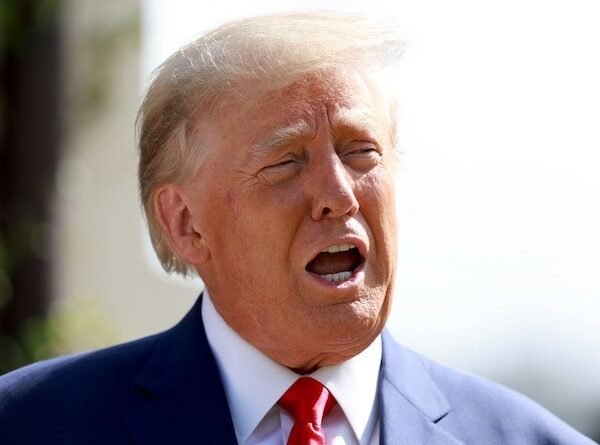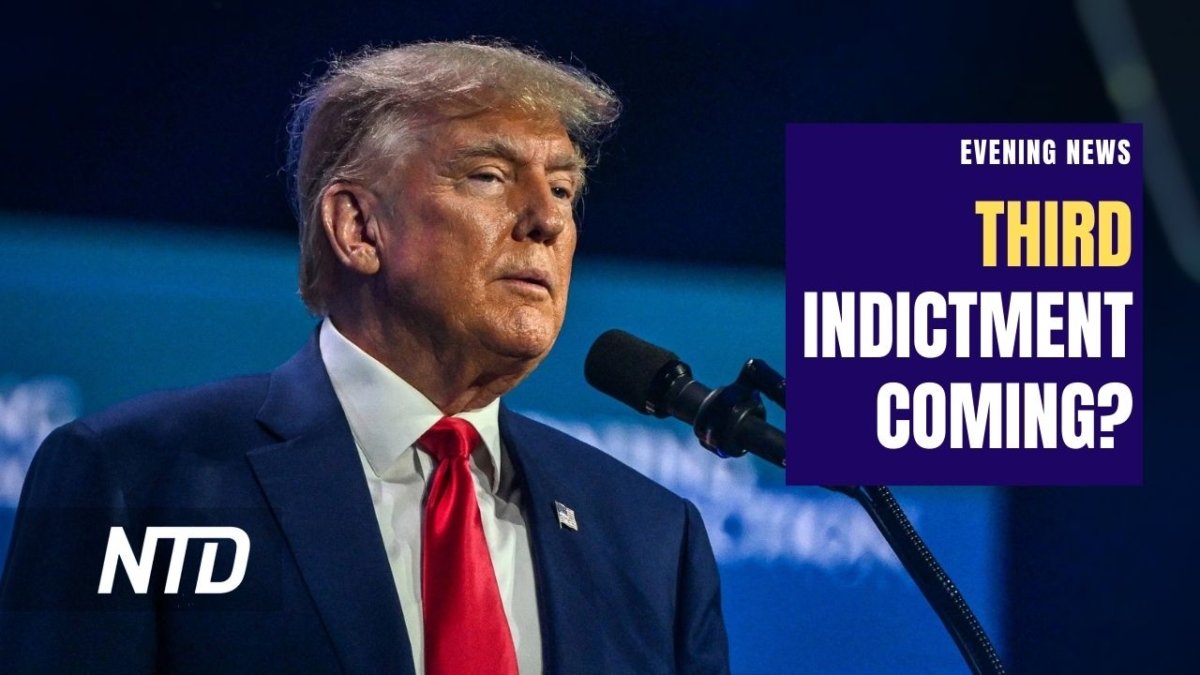Trump’s Attorney Claims Trial During Campaign Constitutes ‘Election Interference’
An attorney for former President Donald Trump said on Friday that it would be considered “election interference” if his client becomes the Republican nominee for president while on trial in Georgia in the months leading up to the general election.
Fulton County Superior Court Judge Scott McAfee opened the door for discussion on trial timing while considering requests by two of the former president’s co-defendants to delay certain pretrial deadlines. But he said he didn’t plan to make any immediate decisions on a trial date.
District Attorney Fani Willis requested that all remaining defendants in the case, including Trump and 14 others, be tried together beginning Aug. 5. Prosecutors estimated it would take them four months to present their case, not including jury selection. This would mean the trial would be underway during the final months of the election campaign.
“Can you imagine the notion of the Republican nominee for president not being able to campaign for the presidency because he is, in some form or fashion, in a courtroom defending himself?” Sadow said during the Friday hearing. “That would be the most effective election interference in the history of the United States.”
Prosecutor Nathan Wade rejected that idea.
“This trial does not constitute election interference,” he said. “This is moving forward with the business of Fulton County. I don’t think that it in any way impedes defendant Trump’s ability to campaign or whatever he needs to do in order to seek office.”
A Fulton County grand jury in August indicted Trump and 18 others, accusing them of participating in a wide-ranging scheme to illegally try to overturn the result of the 2020 election and to keep Trump in power. Four defendants have already pleaded guilty after reaching deals with prosecutors. The remaining 15, including Trump, have pleaded not guilty.
Sadow also noted that his client has three other criminal trials set for next year, and said that could also preclude an August trial date. Sadow suggested that a trial date not be set right now to allow time to see how things play out.
Asked by the judge whether Trump could be tried in 2025 if he were to be elected president next November, Sadow said he believes that the U.S. Constitution’s supremacy clause and the presidential duties would mean that he could not be tried until he was out of office.
Attorney Buddy Parker, who represents lawyer John Eastman, told the judge his client is concerned about the possibility of a trial date being set in 2025, saying that would mean it was more than a year that his case would be pending.
“There are a number of defendants, as noted, who are not running for the presidency of the United States,” Parker said, adding that his client would like to be tried separately from Trump because of the complications involved and would even be in favor of going to trial before August.
Prosecutors have consistently said they want to have one trial in the case, citing efficiency and fairness. McAfee has previously expressed skepticism at bringing more than a dozen defendants to trial at once and he reiterated that doubt on Friday.
He said it’s more likely that the defendants would be split into two groups and prosecutors would have the right to determine who’s in the first group to be tried. If someone in the first group were to reach a plea before trial, then someone from the second group would be substituted in, he said.
The discussion of timing came up while McAfee was hearing arguments on requests by Trump White House chief of staff Mark Meadows and former U.S. Justice Department official Jeffrey Clark’s requests to delay the deadline for each of them to file pretrial motions. They are both trying to have their cases moved to federal court. A federal judge has rejected those requests, but they have both appealed.
The motions deadline for all defendants is Jan. 8. McAfee agreed to postpone that deadline to Feb. 1 for Meadows and Clark.
During the hours-long Friday hearing, McAfee also heard arguments on a slew of other defense motions, many challenging all or part of the indictment on various grounds. Defense attorneys argued that a group of Republicans who met at the state Capitol in December 2020 and signed certificates saying they were the state’s presidential electors acted properly. And they argued that the actions alleged in the indictment amount to political speech that the First Amendment protects.
Copyright 2023 The Associated Press. All rights reserved. This material may not be published, broadcast, rewritten or redistributed without permission.




